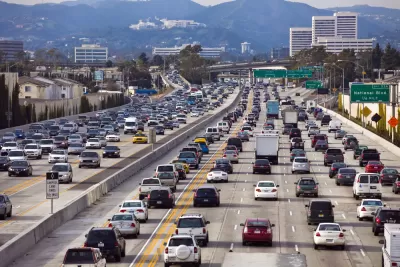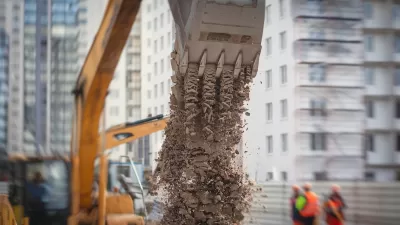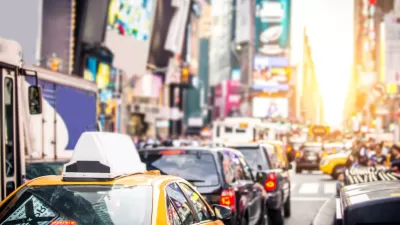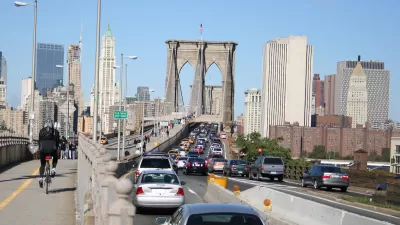A New York Times article marks the historic significance of congestion pricing—gone are the days of treating roads like they're free while ignoring their costs.

Emily Badger writes on the subject of congestion pricing, the major transportation reform under consideration in Los Angeles and well on the way to implementation in New York City. According to Badger, the idea of charging drivers to enter parts of Manhattan, also known as Cordon Pricing, could enact a generational shift in the conventional thinking about transportation:
Congestion pricing has the potential to significantly change how traffic flows through Manhattan streets, how commuters get around the city, how companies like Uber and Lyft operate.
But most radically, if the policy spreads it could challenge a deeply embedded cultural idea, requiring people to pay for something Americans have long demanded — and largely believe they’ve gotten— free of charge.
Congestion pricing would end the illusion of driving as an entitlement, according to Badger. Instead, congestion pricing treats roads as a valuable and scarce resource.
Badger cites experts in transportation planning, such as Michael Manville, professor of urban planning at the University of California, Los Angeles, Kari Watkins, a professor at Georgia Tech’s School of Civil and Environmental Engineering, Jeffrey Tumlin, a transportation consultant at Nelson\Nygaard, Peter Norton, a historian at the University of Virginia, and more.
The purview of the article draws on a history of treating roads as an entitlement back, before explaining the conditions that have created the political will in 2019 to reform many of the massive entitlements afford cars and drivers since the 1920s and '30s. The final word is left to Manville, who says, "Fortunately, congestion pricing comes with its own built-in solution, which is that it raises a ton of money."
FULL STORY: The Streets Were Never Free. Congestion Pricing Finally Makes That Plain.

Study: Maui’s Plan to Convert Vacation Rentals to Long-Term Housing Could Cause Nearly $1 Billion Economic Loss
The plan would reduce visitor accommodation by 25,% resulting in 1,900 jobs lost.

Alabama: Trump Terminates Settlements for Black Communities Harmed By Raw Sewage
Trump deemed the landmark civil rights agreement “illegal DEI and environmental justice policy.”

North Texas Transit Leaders Tout Benefits of TOD for Growing Region
At a summit focused on transit-oriented development, policymakers discussed how North Texas’ expanded light rail system can serve as a tool for economic growth.

Nevada Bills Aim to Establish Home Insurance Assurance Amidst Wildfire Risk
Republican sponsor hopes the FAIR plan would be “a true market of last resort.”

Virginia Law Allows Judges to Mandate Speed Limiters
The law could set a new precedent for speed limiting tech on U.S. vehicles.

Comment: EPA Cuts will Send Atlanta Back to Eye-burning Ozone, Lung-damaging Smog, and Raw Sewage in the Chattahoochee River
A veteran political journalist takes stock of the hard-earned ground Georgia stands to lose with slashed environmental protection.
Urban Design for Planners 1: Software Tools
This six-course series explores essential urban design concepts using open source software and equips planners with the tools they need to participate fully in the urban design process.
Planning for Universal Design
Learn the tools for implementing Universal Design in planning regulations.
City of Santa Clarita
Ascent Environmental
Institute for Housing and Urban Development Studies (IHS)
City of Grandview
Harvard GSD Executive Education
Toledo-Lucas County Plan Commissions
Salt Lake City
NYU Wagner Graduate School of Public Service





























